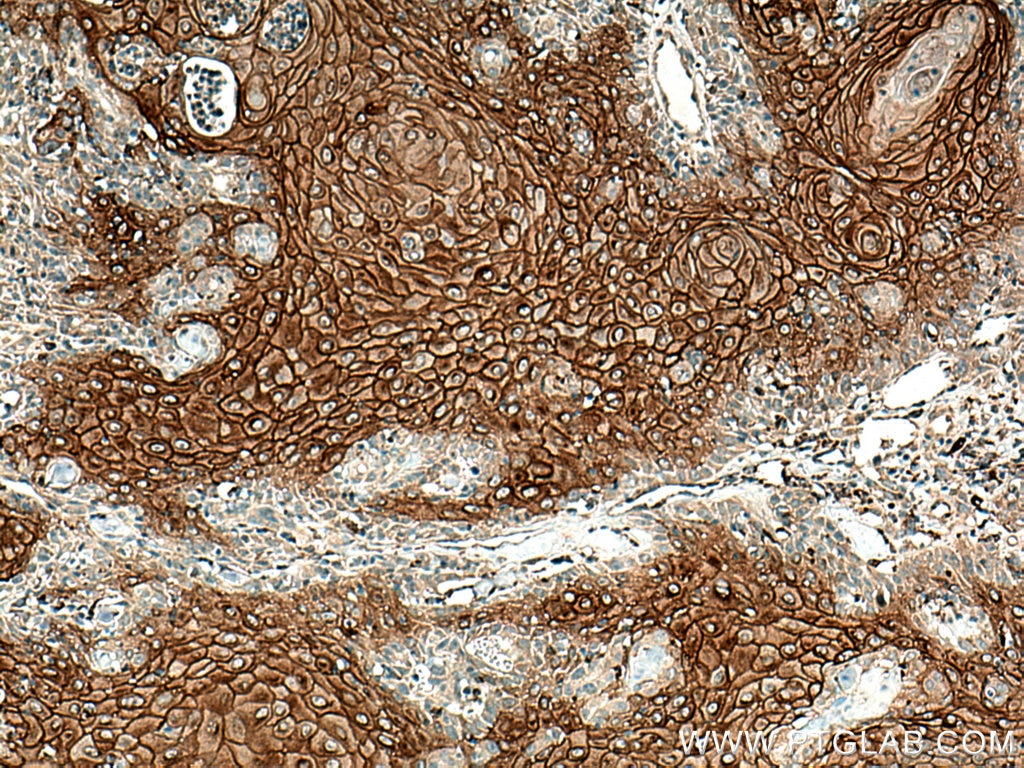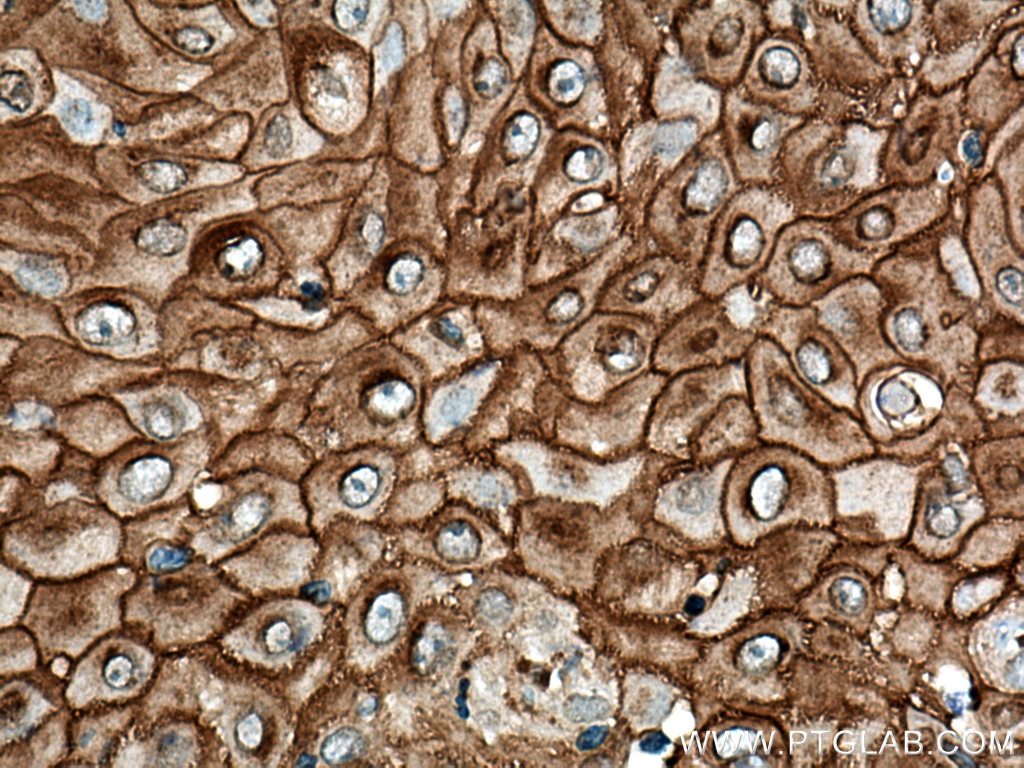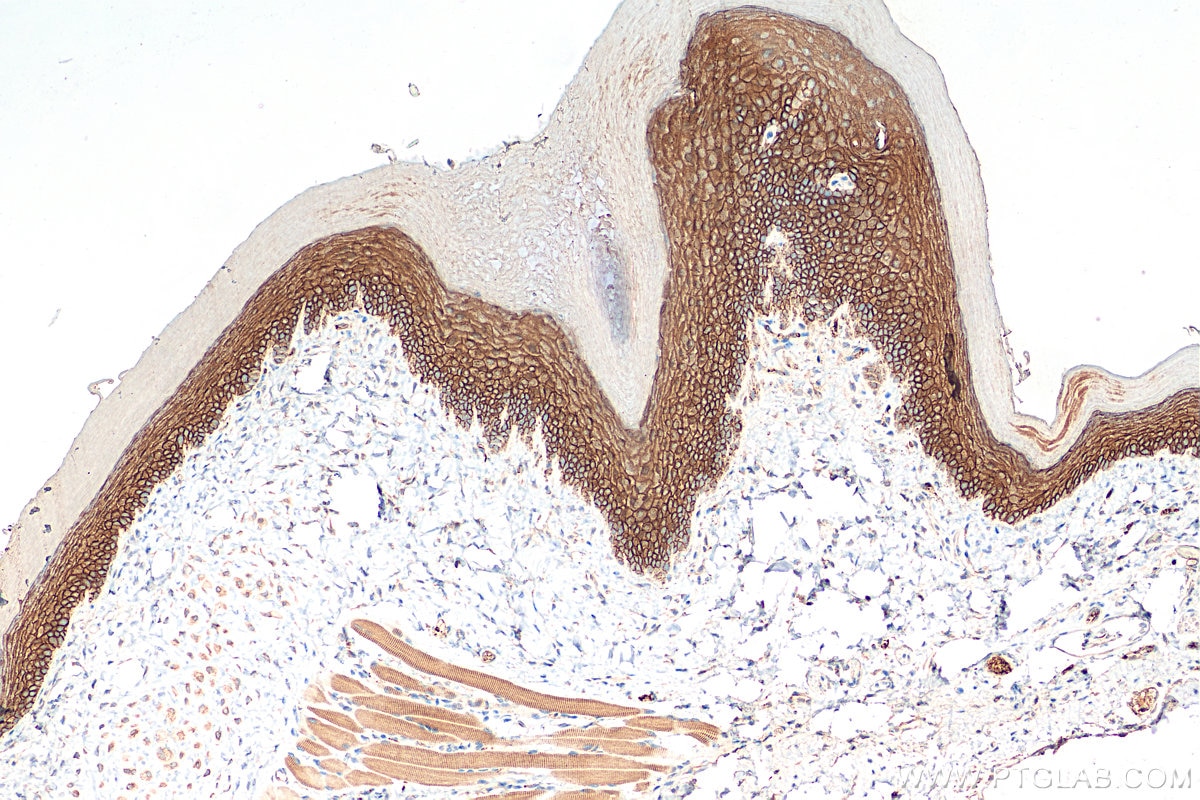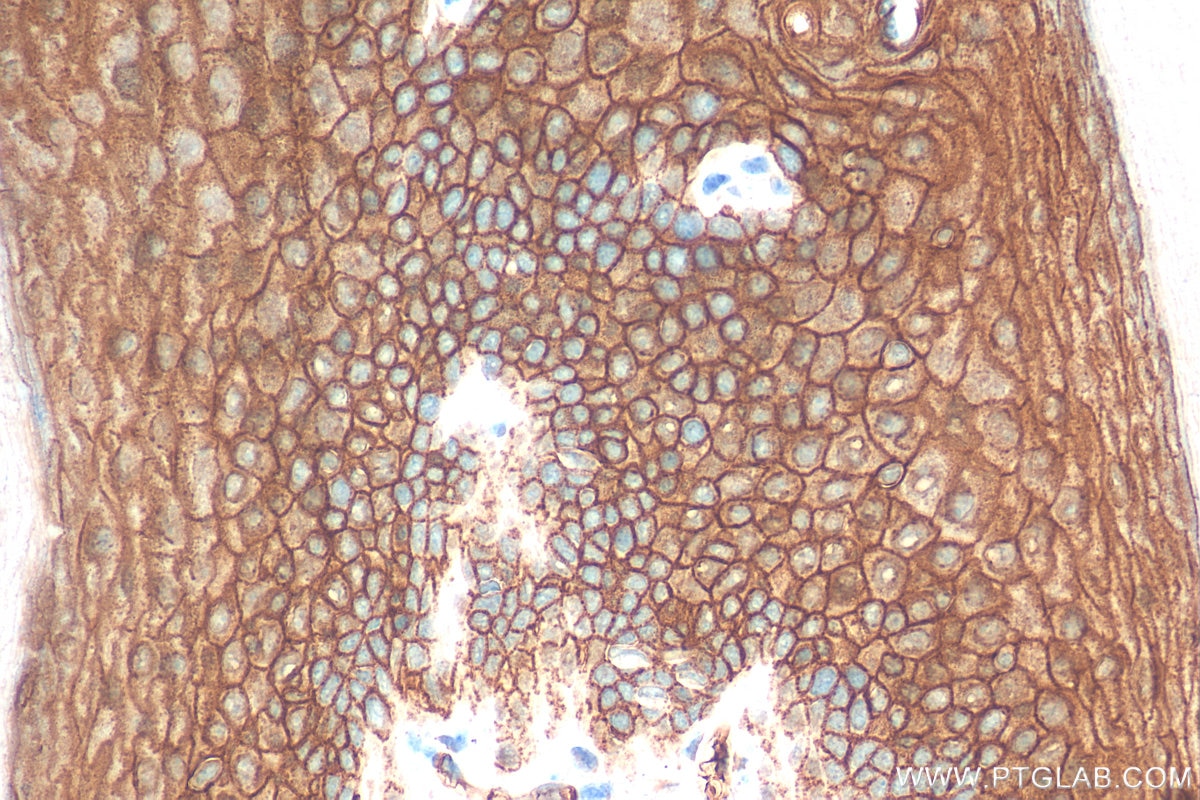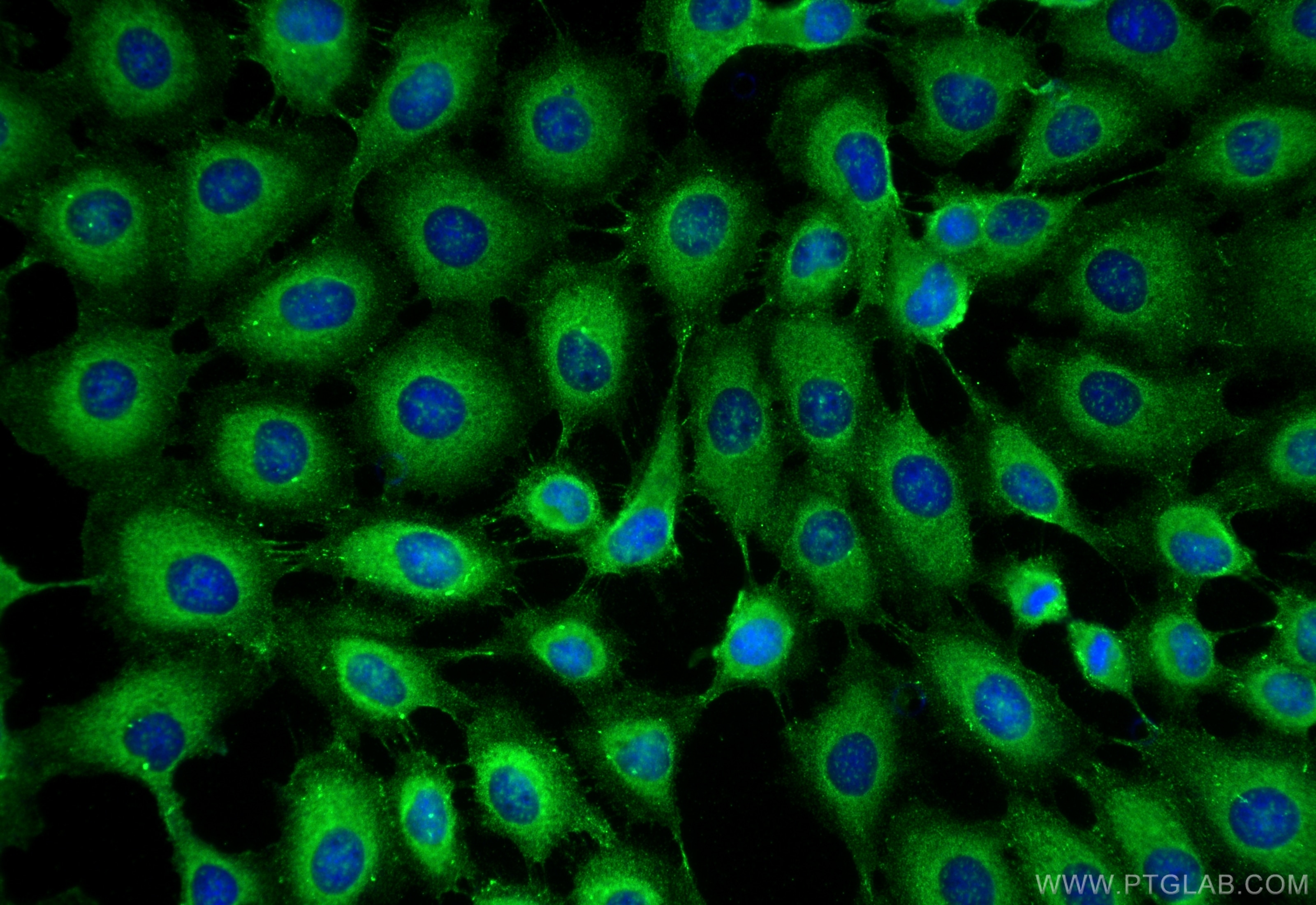DSG1 Polyklonaler Antikörper
DSG1 Polyklonal Antikörper für IHC, IF/ICC, ELISA
Wirt / Isotyp
Kaninchen / IgG
Getestete Reaktivität
human, Maus und mehr (1)
Anwendung
WB, IHC, IF/ICC, ELISA
Konjugation
Unkonjugiert
Kat-Nr. : 24587-1-AP
Synonyme
Geprüfte Anwendungen
| Erfolgreiche Detektion in IHC | Maushautgewebe, humanes Hautkrebsgewebe Hinweis: Antigendemaskierung mit TE-Puffer pH 9,0 empfohlen. (*) Wahlweise kann die Antigendemaskierung auch mit Citratpuffer pH 6,0 erfolgen. |
| Erfolgreiche Detektion in IF/ICC | A431-Zellen |
Empfohlene Verdünnung
| Anwendung | Verdünnung |
|---|---|
| Immunhistochemie (IHC) | IHC : 1:500-1:2000 |
| Immunfluoreszenz (IF)/ICC | IF/ICC : 1:500-1:2000 |
| It is recommended that this reagent should be titrated in each testing system to obtain optimal results. | |
| Sample-dependent, check data in validation data gallery | |
Veröffentlichte Anwendungen
| WB | See 5 publications below |
| IHC | See 2 publications below |
| IF | See 11 publications below |
Produktinformation
24587-1-AP bindet in WB, IHC, IF/ICC, ELISA DSG1 und zeigt Reaktivität mit human, Maus
| Getestete Reaktivität | human, Maus |
| In Publikationen genannte Reaktivität | human, Maus, Ratte |
| Wirt / Isotyp | Kaninchen / IgG |
| Klonalität | Polyklonal |
| Typ | Antikörper |
| Immunogen | DSG1 fusion protein Ag20184 |
| Vollständiger Name | desmoglein 1 |
| Berechnetes Molekulargewicht | 1049 aa, 114 kDa |
| GenBank-Zugangsnummer | BC153001 |
| Gene symbol | DSG1 |
| Gene ID (NCBI) | 1828 |
| Konjugation | Unkonjugiert |
| Form | Liquid |
| Reinigungsmethode | Antigen-Affinitätsreinigung |
| Lagerungspuffer | PBS with 0.02% sodium azide and 50% glycerol |
| Lagerungsbedingungen | Bei -20°C lagern. Nach dem Versand ein Jahr lang stabil Aliquotieren ist bei -20oC Lagerung nicht notwendig. 20ul Größen enthalten 0,1% BSA. |
Hintergrundinformationen
Desmosomes are cell-cell junctions between epithelial, myocardial, and certain other cell types. Desmosomal cadherins, consisting of four desmogleins (DSG1-4) and three desmocollins (DSC1-3) in humans, mediate adhesion through calcium-dependent homophilic/heterophilic interactions. DSG1 is a single-pass transmembrane glycoprotein highly expressed in the epidermis and localized primarily within the suprabasal epithelial layers (PMID: 16286477; 24220297). DSG1 mediates intercellular adhesion and is crucial in maintaining epidermal integrity and barrier function (PMID: 23974871). It is also involved in epithelial cell differentiation (PMID: 23524961). Mutations in the DSG1 gene can cause the autosomal dominant disorder to striate palmoplantar keratoderma and a syndrome featuring severe dermatitis, multiple allergies, and metabolic wasting (SAM syndrome) (PMID: 29315490; 23974871).
Protokolle
| PRODUKTSPEZIFISCHE PROTOKOLLE | |
|---|---|
| IHC protocol for DSG1 antibody 24587-1-AP | Protokoll herunterladenl |
| IF protocol for DSG1 antibody 24587-1-AP | Protokoll herunterladen |
| STANDARD-PROTOKOLLE | |
|---|---|
| Klicken Sie hier, um unsere Standardprotokolle anzuzeigen |
Publikationen
| Species | Application | Title |
|---|---|---|
J Nanobiotechnology ZNPs reduce epidermal mechanical strain resistance by promoting desmosomal cadherin endocytosis via mTORC1-TFEB-BLOC1S3 axis | ||
EMBO Rep O-glycan initiation directs distinct biological pathways and controls epithelial differentiation. | ||
Stem Cell Res Ther Both Wnt signaling and epidermal stem cell-derived extracellular vesicles are involved in epidermal cell growth. | ||
J Cell Sci Novel stress granules-like structures are induced via a paracrine mechanism during viral infection. | ||
In Vitro Cell Dev Biol Anim S100A11 is involved in the progression of colorectal cancer through the desmosome-catenin-TCF signaling pathway | ||
Microscopy (Oxf) Inhibition of retinoid X receptor improved the morphology, localization of desmosomal proteins and paracellular permeability in three-dimensional cultures of mouse keratinocytes. |
